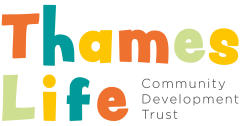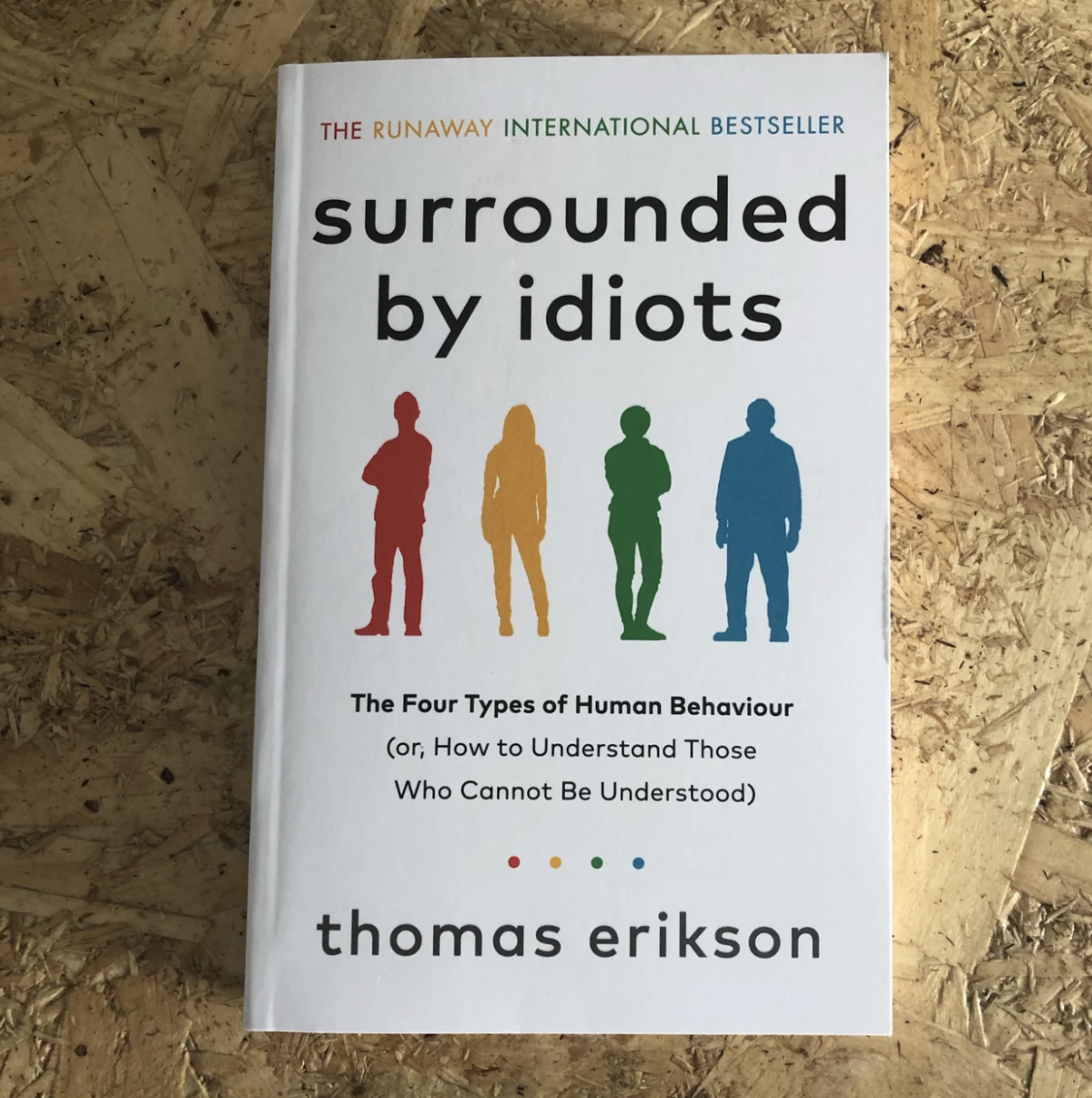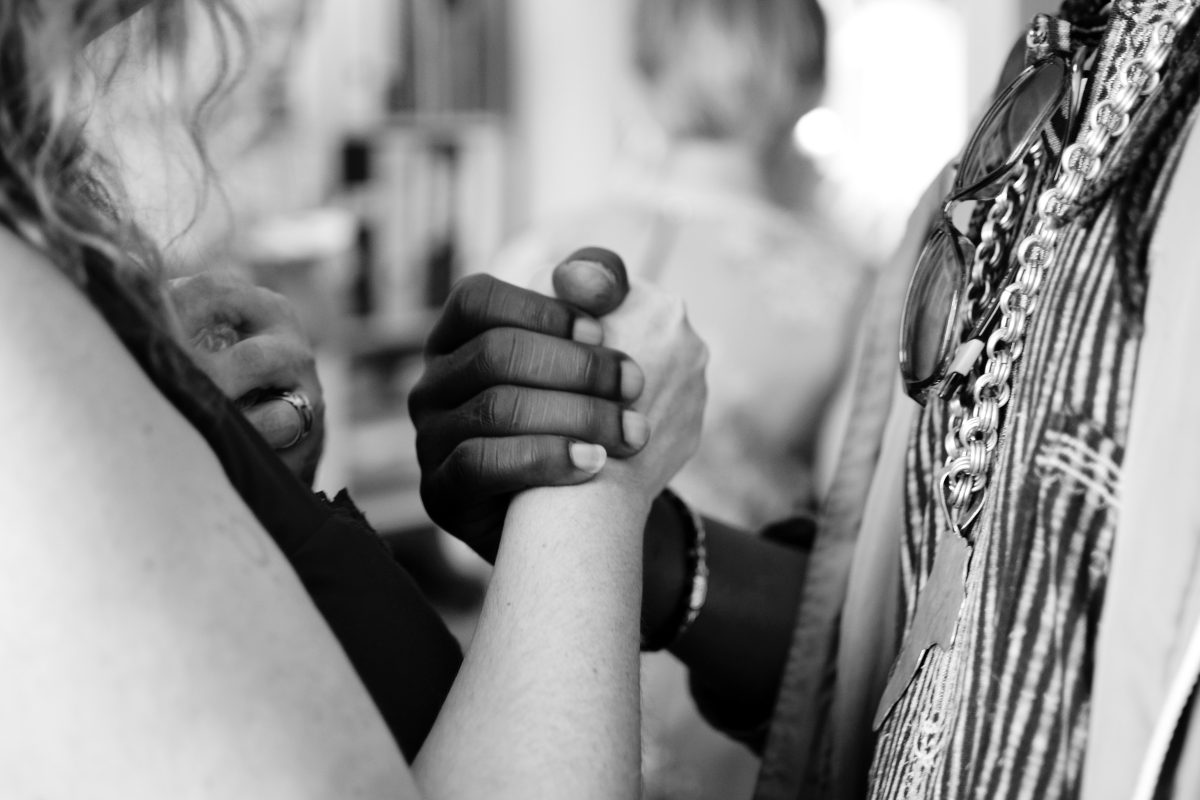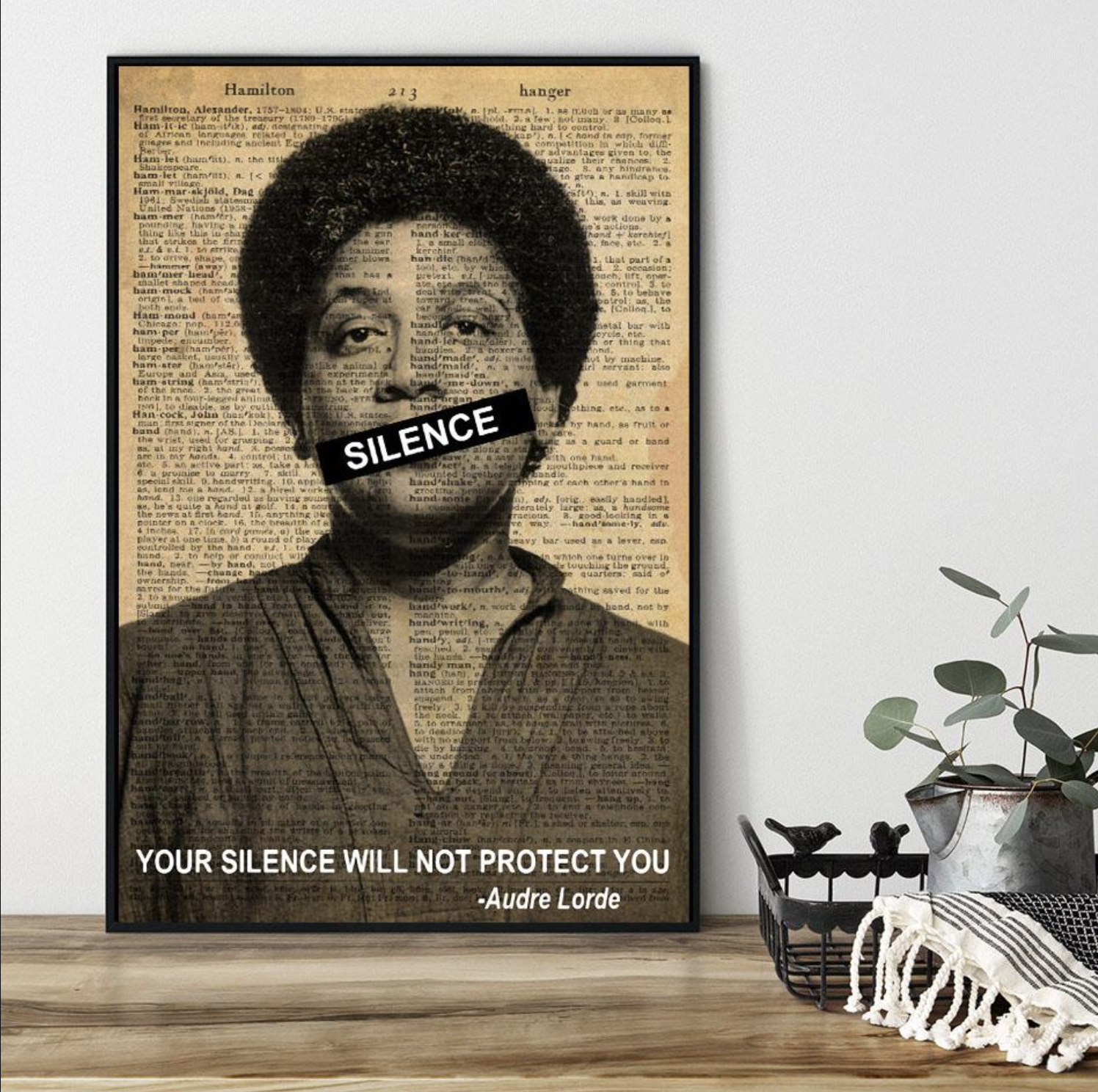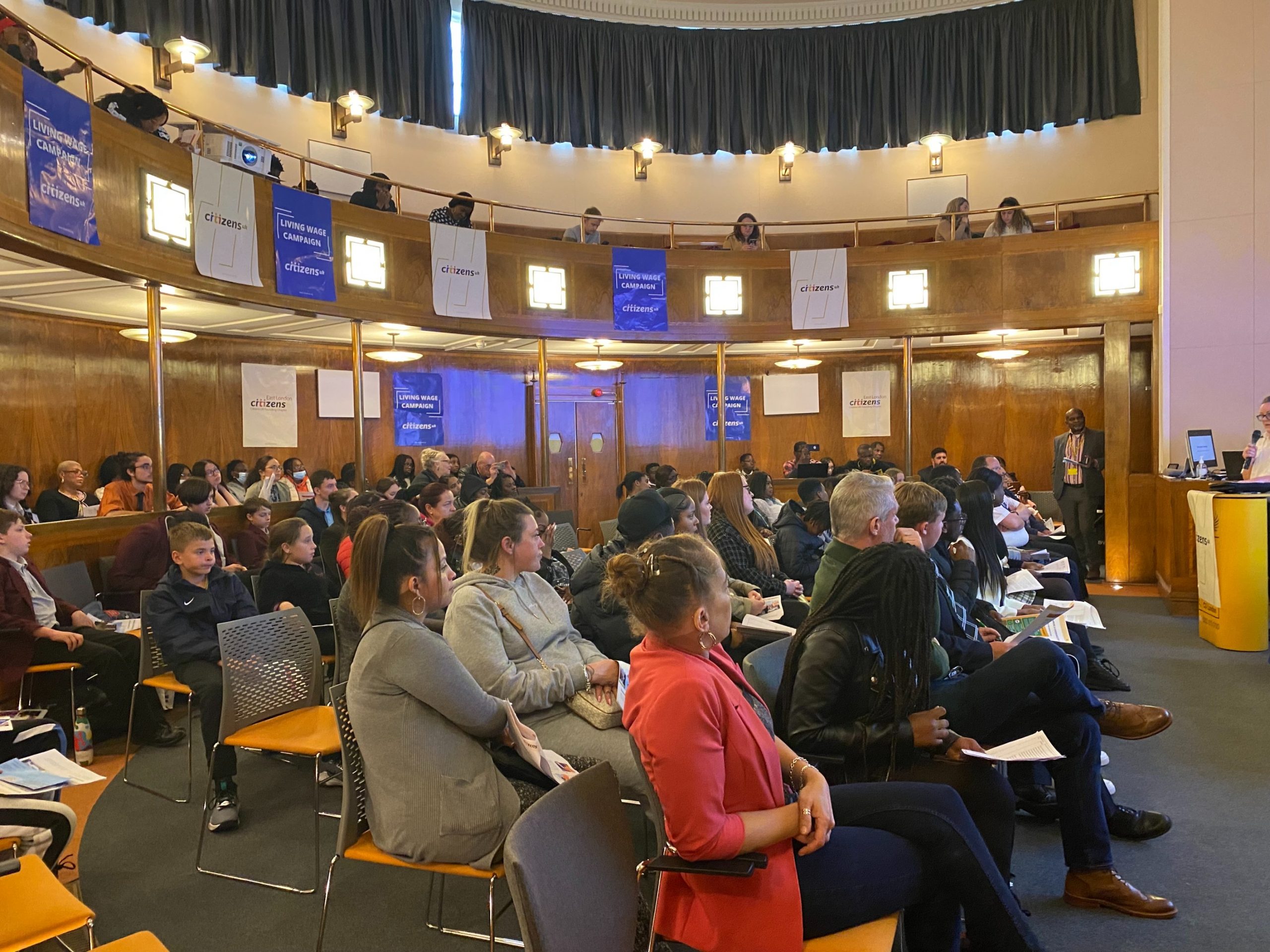The gist of a recent best-selling book by Thomas Erikson (Surrounded by Idiots) is that most of us at some point or another throw our hands up in the air in frustration at the behaviour and actions of others and wonder if we are in fact surrounded by idiots.
We look in amazement and disbelief when someone says something we don’t recognize. How could they possibly think that? We form groups that reinforce our views and put us further out of touch with other groups, who are not like us. The idiots over there, who occasionally stare back, at the idiots over there.
Thomas Erikson got a bit of stick for the title. It’s not very nice to call people idiots. But for me, I think what he is saying is that we are all idiots because we end up talking and judging more than we listen. We take perceptual short cuts; we go on automatic pilot; we tune people out. It’s hard not to really.
The book puts forward four personality types: red, yellow, green, and blue spanning people who are extrovert, active, implementers (red, yellow) to those who are more introverted, passive and reserved (blue, green) and likewise those who are task and issue oriented (red, blue) and those who are more relation-oriented (green, yellow). Most people have a combination of two colours that predominate.
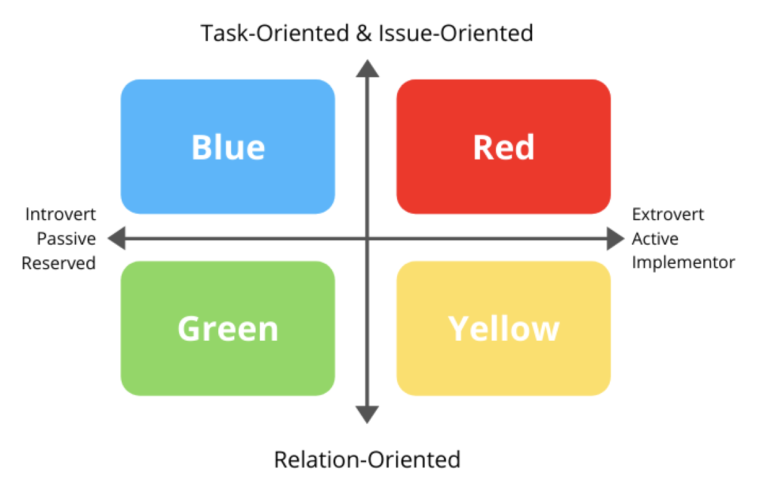
With every personality type there are positive and negative features – it’s a blessing and a curse, as Detective Monk would say on Netflix.
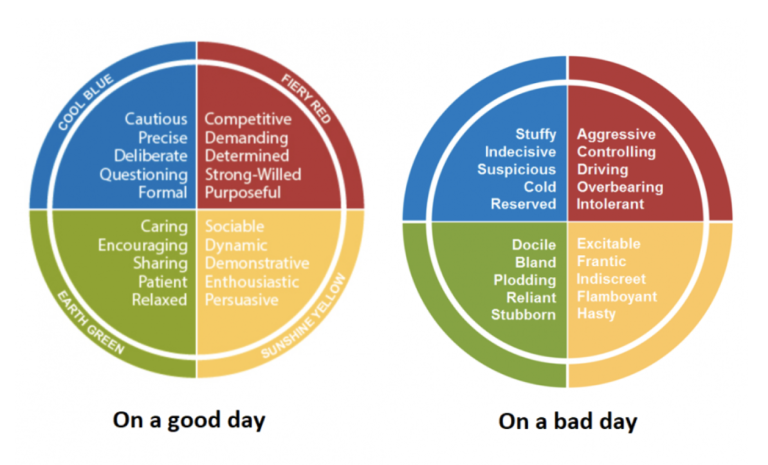
I am familiar with other exercises like this – Myers Briggs, Belbin etc., and I recommend anyone to exercise a degree of skepticism. These things are not an exact science but if it helps us get a different perspective that is more productive for self and others, I’d say go with it.
My idiot rating.
I did this exercise with others, leaving out the bit about surrounded by idiots and all the theory but as a blind exercise and it was surprising how, from a wide choice of adjectives, the same words cropped up multiple times, when people were asked to choose for each other. I had bits of all the colours, red was most common – ‘strong willed’ came up a lot, as did ‘analytical’ (blue), but plenty of dashes of green and yellow.
I am happy to be seen as strong willed, I’ll take that. As I explained to one senior stakeholder earlier this year, when I felt like things might be getting a bit too directive, I don’t want to be in anyone’s pocket. Maybe that came across as a bit aggressive? On balance I’m ok with it but it’s not for everyone. You can see the potential for clashes.
An idiotic voluntary sector.
I’m in a sector that tends to value the more caring, passive, relation-oriented side of things (green, yellow). I’m sure of it. That’s why the voluntary sector gets pushed around and lacks the respect, reward and recognition gifted to other sectors. It hardly ever stands up for itself. It wouldn’t know how to. That’s the downside to being caring and sharing. Sometimes it is not a mistake to take kindness for weakness.
That’s probably a partial truth. I’m an idiot after all, with red tendencies (independent, pushy, hard). When I feel I need to be. A more respectful, supportive, pleasant (green) approach might do wonders. I can sometimes do that too, allegedly.
Useful Idiots.
Lenin coined the term ‘useful idiot’. It has been taken to mean someone who is being used. A naïve fool, susceptible to manipulation, who is propagandizing for a cause without fully comprehending the cause’s goals. When I see the voluntary sector talking about collaboration, trust, and partnership uncritically I sometimes get that vibe. It’s like these words are spells that make all the bad things (tokenism, placation) go away just because someone in authority says them often enough.
Ladder of participation.
Sherry Arnstein showed how people get suckered into thinking they are participating and sharing power when mostly they are not – she called it a ladder of participation. Next time you are in a meeting or at an event that purports to be about engagement – consider what rung of the ladder you and others are on. The lower rungs are for useful idiots.
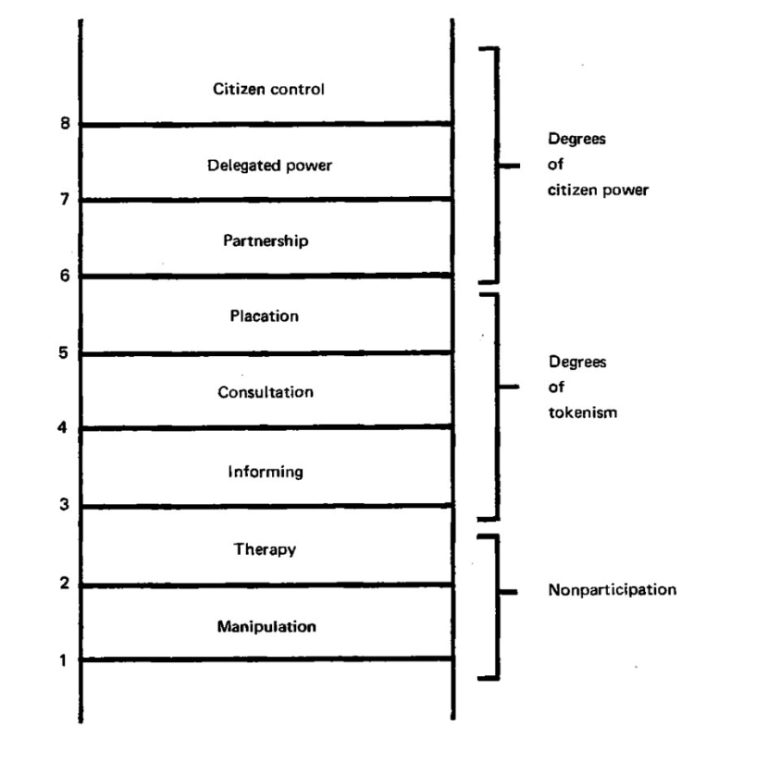
Cash rules everything around me.
Councils in London feel like they’re in a death spiral right now. Those who avoid section 114 bankruptcy notices are reeling. The minutes of cabinet monthly papers see threats everywhere and the cuts go ever deeper. Elsewhere if you follow the money, land value is a gift that keeps giving. The borough’s population will near double within a generation or two. If you can build housing units, admittedly of variable quality, safety, and price, then that’s where the financial opportunity is, that’s the ticket to escape austerity and public services rationing. Council policy is increasingly built around asset maximisation – sweating what you have for money. What no one will tell you publicly is that there is a trade-off between profit and social need – guess which side is winning?
Residents driving change.
It’s crazy that we live in a city that has so much money and yet people In Barking and Dagenham live in poverty. They die early. That is what poverty means ultimately. A lot of that money is bound up in property – who gets to build it and who can afford it. It’s crazy. For those who suffer we appear to be surrounded by idiots. Listening to the apologists for regeneration, residents are to blame, they lack aspiration. The alternative would be that the council and developers bear more than a little responsibility. The councils and developers might also blame central government, the framing of accountability ripples out, keep going and central government might point to a global market. You intervene then hot money exits your economy.
What would it take for the Thames Life vision to be true – ‘a diverse and vibrant community where residents are driving change’? There are different perceptions. I’m making the case that long term sustainable change is only possible when residents and their community groups lead it and set the agenda from the start. That would be partnership. That would be aspirational. To do that we will need to double down and be stronger willed. Is that realistic? Does anything important or worthwhile start from making an accommodation with someone else’s view of what is possible or appropriate? With our thoughts we make the world.
By Matt Scott
CEO
Sources:
Arnstein, S (1969) Ladder of Citizen Participation. Journal of the American Planning Association, Vol. 35, No. 4, July 1969, pp. 216-224.
Colenutt, B (2020) The Property Lobby. Bristol: Polity
Erikson, T (2014) Surrounded By Idiots. London: Penguin
Trust for London (2024) London’s Poverty Index: Barking & Dagenham indicator rankings:
- Infant mortality – worse compared to all London Boroughs
- Premature mortality – worse compared to all London Boroughs
- Qualifications at 19 – worse compared to all London Boroughs
Allies & Morrison – Barking & Dagenham character study:
“The pressure for housing within London and the shift of development eastward has positioned the Borough of Barking & Dagenham for growth. Located in east London, and with a population of 210,000, the borough has scope to increase the number of homes by 70% over the next 15 years”.
